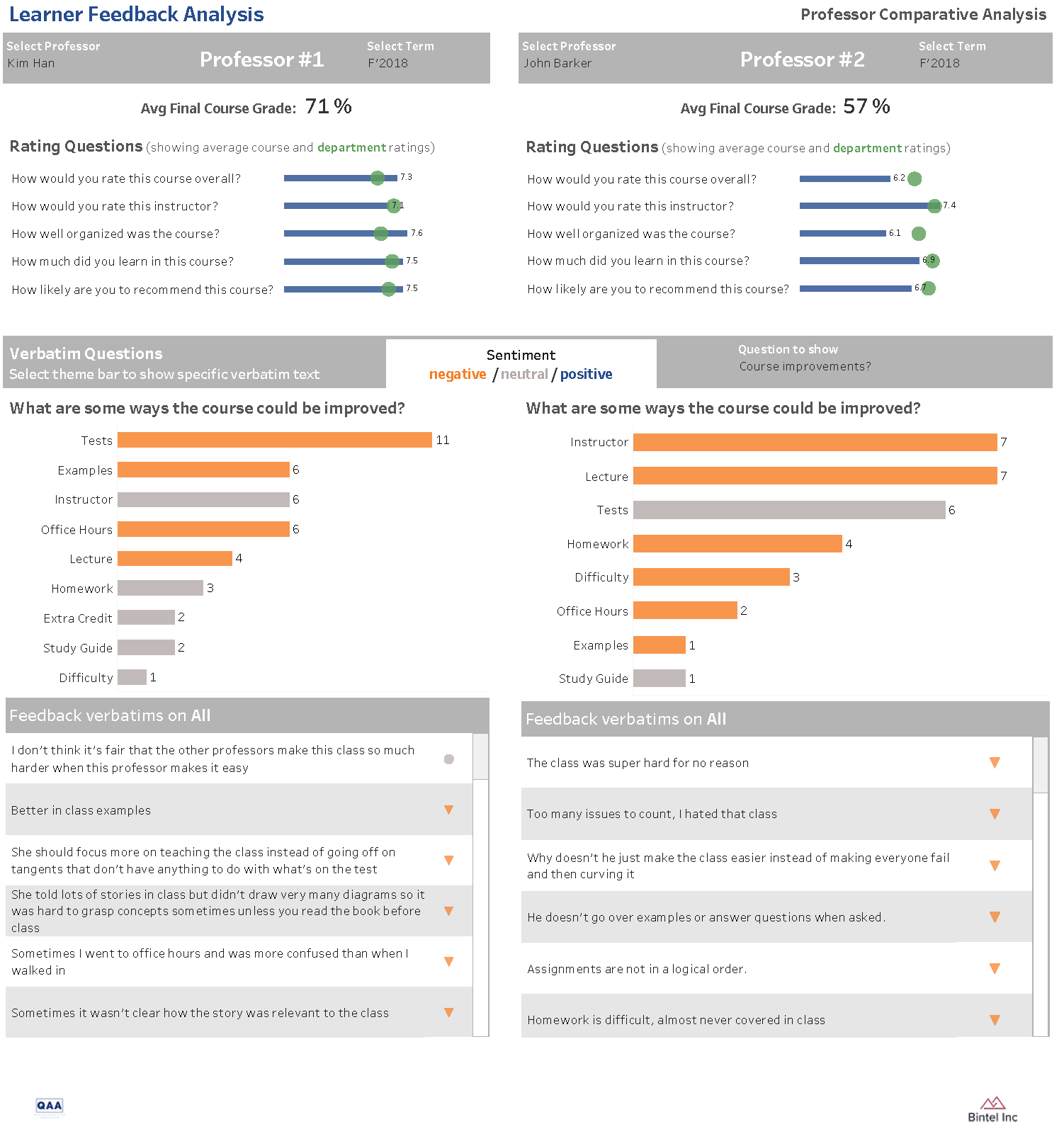We want to say thank you to all of the current and aspiring teachers out there, without you none of us would be where we are today. You have done this job without nearly enough recognition and you have inspired a love of learning in more people that you will ever know.
Read MoreHow to Use AI to Become a Better Teacher
Comparing Instructor or Trainer Performance
We have talked about how learner analytics are beneficial to learners, trainers/instructors, departments, and organizations as a whole, but it's one thing to understand concepts and another thing to actually engage with a solution.
Read MoreLearner Analytics for eLearning
As schools are forced to move to online learning, effective eLearning has become extremely important to students everywhere. The classroom has obvious benefits that cannot be recreated online, but there are more subtle things that students may be missing out on that only they can articulate. Instructors are doing their best and will continue to provide lessons, but they have no way of knowing if their new methods of teaching are working for students.
Read MoreLet consumers VENT in their own words!
This post is for consumers who take surveys (all of us!) and the companies that write them. As consumers, our days are busy as it is without companies hounding us endlessly with one survey after another. Do their stock questions and answers really get at your issues? Wouldn't it just be better for you to express to companies, in your own terms, in your own words? Companies, let them VENT!
Read More
Small Data Good, Big Data Sometimes Bad
I was hit with three articles this morning that cut right to the heart of some work we’re doing on domain specific knowledgebases. AI projects require data, domain expertise, good applications developers and the right combination of AI technology.
Read More
Good Concept Detection Requires an 'Almost Engine'
How many geese in this picture? You didn't need to count. Your answer probably contained the words “approximately”, “average”, “almost”, “sort of”, "guesstimate" or “about”. One of the most powerful features of your brain is that it does not treat language as math, a series of binary yes or no formal constructs. Humans are masters of writing the same idea in many ways, understanding what you meant even if you didn't say it perfectly. You also know when someone is being so careful with their words, they're lying (we're all tested on this one daily). This critical skill is used by analysts all the time.
Read MoreConcepts are Key, Not Words
A critical skill for the analyst during earnings season is detecting changes in the key indicators or themes for a company and its peers. Keyword detection is often passed off as theme detection but it's not and the difference is critical. Teaching software (AI) to find themes buried in SEC filings and press coverage from investor relations is a critical technology advantage for Boulder.
Read More







